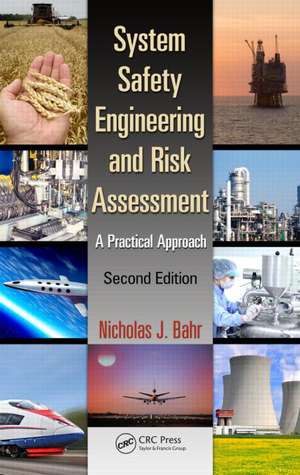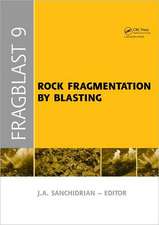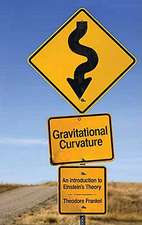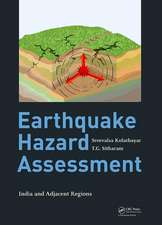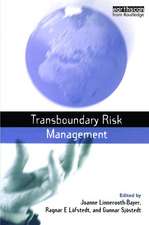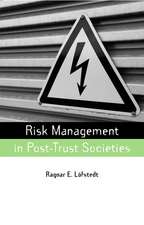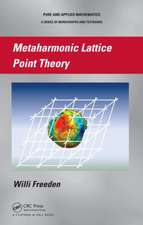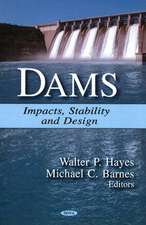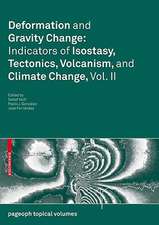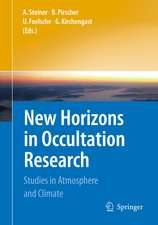System Safety Engineering and Risk Assessment: A Practical Approach, Second Edition
Autor Nicholas J. Bahren Limba Engleză Hardback – 9 dec 2014
The book is intended for working engineers who know that they need to build safe systems, but aren’t sure where to start. To make it easy to get started quickly, it includes numerous real-life engineering examples. The book’s many practical tips and best practices explain not only how to prevent accidents, but also how to build safety into systems at a sensible price. The book also includes numerous case studies from real disasters that describe what went wrong and the lessons learned.
See What’s New in the Second Edition:
- New chapter on developing government safety oversight programs and regulations, including designing and setting up a new safety regulatory body, developing safety regulatory oversight functions and governance, developing safety regulations, and how to avoid common mistakes in government oversight
- Significantly expanded chapter on safety management systems, with many practical applications from around the world and information about designing and building robust safety management systems, auditing them, gaining internal support, and creating a safety culture
- New and expanded case studies and "Notes from Nick’s Files" (examples of practical applications from the author’s extensive experience)
- Increased international focus on world-leading practices from multiple industries with practical examples, common mistakes to avoid, and new thinking about how to build sustainable safety management systems
- New material on safety culture, developing leading safety performance indicators, safety maturity model, auditing safety management systems, and setting up a safety knowledge management system
| Toate formatele și edițiile | Preț | Express |
|---|---|---|
| Paperback (1) | 551.74 lei 3-5 săpt. | +27.28 lei 5-11 zile |
| CRC Press – 2 aug 2017 | 551.74 lei 3-5 săpt. | +27.28 lei 5-11 zile |
| Hardback (1) | 1282.82 lei 6-8 săpt. | |
| CRC Press – 9 dec 2014 | 1282.82 lei 6-8 săpt. |
Preț: 1282.82 lei
Preț vechi: 1564.41 lei
-18% Nou
Puncte Express: 1924
Preț estimativ în valută:
245.50€ • 255.36$ • 202.67£
245.50€ • 255.36$ • 202.67£
Carte tipărită la comandă
Livrare economică 14-28 aprilie
Preluare comenzi: 021 569.72.76
Specificații
ISBN-13: 9781466551602
ISBN-10: 1466551607
Pagini: 444
Ilustrații: 73 black & white illustrations, 39 black & white tables
Dimensiuni: 156 x 234 x 25 mm
Greutate: 0.75 kg
Ediția:Revised
Editura: CRC Press
Colecția CRC Press
ISBN-10: 1466551607
Pagini: 444
Ilustrații: 73 black & white illustrations, 39 black & white tables
Dimensiuni: 156 x 234 x 25 mm
Greutate: 0.75 kg
Ediția:Revised
Editura: CRC Press
Colecția CRC Press
Cuprins
Introduction. Definitions and Concepts. Safety Analysis in Engineering: How Is It Used?. Safety Management Systems. Hazard Analysis. Process Safety Analysis. Fault Tree Analysis. FMECA, Human Factors, and Software. Other Techniques. Data Sources and Training. Accident Reporting, Investigation, Documentation, and Communication. Government Regulations and Safety Oversight. Risk Assessment. Risk Evaluation.
Notă biografică
Nicholas J. Bahr is an internationally recognized expert in system safety, risk assessment, and enterprise risk management systems and has over 25 years of professional experience working around the world. He has set up safety management systems for companies and helped governments improve their safety oversight programs. Over his career, Mr. Bahr has conducted programs for commercial and government clients, detailed technical risk assessments, implemented enterprise risk management business processes, and developed regulatory oversight programs throughout the United States, United Kingdom, Europe, South America, Australia, the Middle East, and North Africa. His diverse experience and background covers many industries including aerospace, utilities, oil and gas, manufacturing, and transportation.
After a high-profile rail accident in Australia, Mr. Bahr was asked to lead an international team conducting a safety management systems audit of both the regulator and the railway. The audit methodology is now considered the new international gold standard for safety management systems. His client engagements range from risk strategy for senior government and commercial executives, to detailed risk assessments for front-line management. He has helped CEOs, senior VPs, and senior government officials realize tangible and sustainable benefits from their safety and risk management programs. Mr. Bahr is a past U.S. delegate to various standards writing bodies. Currently, Mr. Bahr is a principal at Booz Allen Hamilton and is the regional manager for the Middle East and North Africa.
After a high-profile rail accident in Australia, Mr. Bahr was asked to lead an international team conducting a safety management systems audit of both the regulator and the railway. The audit methodology is now considered the new international gold standard for safety management systems. His client engagements range from risk strategy for senior government and commercial executives, to detailed risk assessments for front-line management. He has helped CEOs, senior VPs, and senior government officials realize tangible and sustainable benefits from their safety and risk management programs. Mr. Bahr is a past U.S. delegate to various standards writing bodies. Currently, Mr. Bahr is a principal at Booz Allen Hamilton and is the regional manager for the Middle East and North Africa.
Recenzii
"I found Nick’s chapters on Safety Management Systems and Government Regulations and Safety Oversight, to be very comprehensive, insightful and informative. As a practicing occupational health and safety regulator and a previous transport safety regulator, I will certainly keep Nick’s second edition on my book shelf as a ready reference, just as I do with his first edition."
—Len Neist, Health & Safety Regulator, Australia
—Len Neist, Health & Safety Regulator, Australia
Descriere
This book gives engineers and managers working in companies and governments around the world a pragmatic approach to system safety and risk assessment techniques. It explains in easy-to-understand language how to design workable safety management systems and implement tested solutions immediately. The book’s many practical tips and best practices explain not only how to prevent accidents, but also how to build safety into systems at a sensible price. The book includes numerous case studies from real disasters that describe what went wrong and the lessons learned.
